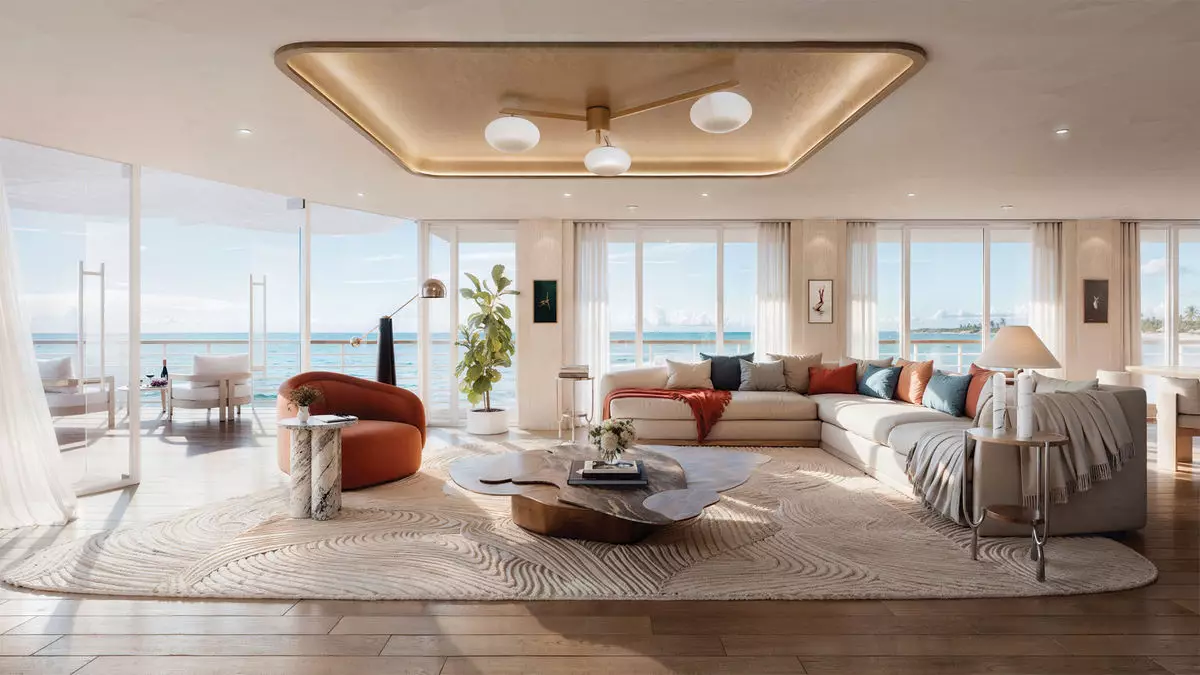In an age marked by extraordinary shifts in lifestyle and work patterns, residential cruising is emerging as a fascinating alternative for discerning individuals who seek a life less ordinary. As traditional life continues to pivot towards remote working schemes and digital connectivity, the allure of spending a year at sea is tempting an increasing number of affluent consumers. This trend is not just a whim; it reflects a profound transformation in how we perceive home and work. With multiple players entering this segment, the residential cruise market is poised for growth, inviting curiosity and skepticism in equal measure.
Market Dynamics: The Ripple Effect of Long World Cruises
Existing players in the cruise sector have paved an impressive pathway for the new entrants by extending their itineraries and offering long-duration voyages. This development dovetails with an emerging demographic of affluent professionals who have the means and increasingly flexible work lives that allow them to live anywhere, provided there’s reliable internet access and comfort. Consequently, more cruise lines are offering permanent living arrangements at sea, with high-speed internet facilitating office work amidst the mesmerizing backdrop of constantly changing horizons.
With estimates suggesting a significant increase in the popularity of longer world cruises, it’s anticipated that residential cruise lines like Crescent Seas, Villa Vie, and others will tap into this burgeoning market. Yet, while the promise of a more immersive lifestyle is enticing, there remain substantial hurdles such as operational reliability and financial viability that need meticulous attention.
Enter Crescent Seas: A New Challenger
Crescent Seas stands out amid the clamor, bravely launching itself into an arena populated by established lines, even though its journey thus far has been marred by challenges. Founded by former Norwegian Cruise Line Holdings chairman Russell Galbut, Crescent Seas aims to redefine living at sea. Scheduled to set sail in December 2026, the company plans to offer luxurious residential options on refurbished vessels, catering to those hoping to own a slice of ocean paradise.
The pricing for these living quarters aligns with the high-net-worth individuals these companies are targeting—ranging from $750,000 to $10 million for residences on the Crescent Seas Navigator. However, as exciting as these prospects may be, the cruise industry is littered with failed launches and empty promises. The experiences with Life at Sea Cruises, which had to cancel its inaugural voyage mere weeks prior, serve as stark reminders of the precarious nature of this business model.
A Cautious Optimism in Sales Strategies
Travel advisors are now being woven into the fabric of sales strategies for residential cruises, a pivot that could influence their acceptance in the broader market. While this may seem pragmatic, as these advisors can earn commissions on both long-term residencies and short-term rentals, the real question is: will travel agents adapt to selling such unconventional products?
Alex Sharpe, CEO of Signature Travel Network, articulates the dilemma well. Although he acknowledges the earning potential associated with promoting Crescent Seas, he falls short of endorsing it outright due to its unique nature. Potentially lucrative though it might be, selling the dream of year-round oceanic living requires a different skill set than what most travel advisors currently possess.
From Curiosity to Confidence: Building Trust in the Market
With many residential cruise lines facing skepticism from industry veterans, credibility will become a pivotal asset in establishing a more robust consumer base. Industry observers like Carlos Edery, co-founder of Luxury Cruise Connections, express an understandable trepidation when it comes to recommending such high-stakes investments. The uneven history of sanitation and operational challenges in previous ventures places a spotlight on the need for transparency and reliability in new entrants.
Mikael Petterson, founder of Villa Vie, emphasizes the importance of integrating travel advisors into the sales funnel, suggesting a holistic approach that could lend credence to the entire concept. The fact that Villa Vie’s Odyssey is already significantly booked is an optimistic sign but could also reflect a mere curiosity rather than an unwavering commitment to long-term living options afloat.
Navigating the Waters of the Future
The future of residential cruising remains uncertain yet filled with potential. As consumer preferences evolve, so too must the companies brave enough to offer a lifestyle that recasts the mundane into the extraordinary. Currently, the appeal of living at sea resonates with those who are ready for a radical life change, seeking to escape traditional bindings. The intertwined fates of technology, lifestyle flexibility, and market readiness will perhaps dictate the success of this nascent venture.
In this uncharted territory, questions abound about the sustainability of such ventures. Still, one thing is evident — the tides of time continue to shift, and the possibility of floating through life, quite literally, is indeed fascinating.


Leave a Reply